This article was co-authored by Allison Romero, PT, DPT and by wikiHow staff writer, Hannah Madden. Dr. Allison Romero is a Pelvic Health Specialist, Physical Therapist, and the Owner of Reclaim Pelvic Therapy in the San Francisco Bay Area. With over a decade of experience, Allison specializes in comprehensive pelvic physical therapy treatments for pelvic floor dysfunction. She holds a Bachelor of Science in Kinesiology and Exercise Science from Sonoma State University and a Doctor of Physical Therapy from the University of Southern California. Allison is a board certified Physical Therapist in California and is a member of the American Physical Therapy Association-Section on Women’s Health and the International Pelvic Pain Society.
There are 7 references cited in this article, which can be found at the bottom of the page.
This article has been viewed 31,044 times.
If you have trouble controlling your bladder, you might be struck with a sudden urge to “go” (even when it’s not totally necessary). The urge to pee can range from an annoyance to a life-altering problem that’s causing a lot of distress. Fortunately, you can train your bladder over a matter of weeks by holding in your urine and doing pelvic floor exercises to prevent emergencies or leaks before they happen.
Steps
Interval Training
-
1Keep a log of the specific times you urinate throughout the day. For a 24 to 48 hour period, write down what time it is when you urinate on a normal day. This will show you how long you usually wait to go to the bathroom so you have a good starting point for your training. Do this the day before you start your bladder training to get the most accurate information.[1]
- For example, you might feel the urge to urinate every hour or so. If you know that, you can figure out how much longer you need to wait.
- Most people urinate between 4 and 7 times a day on average. If you’re going much more than that, bladder interval training is probably right for you.
-
2Empty your bladder as soon as you wake up. This will give you a fresh start for the day so you can begin your training. As soon as you get out of bed, head to the toilet and empty your bladder completely.[2]
- Your bladder usually collects a lot of urine throughout the night, so you’ll probably have to go anyway.
Advertisement -
3Try to hold your urine for 15 minutes longer than you normally would. For example, if you normally go to the bathroom every hour, try to hold it for an hour and 15 minutes. This can be tough at first, so don’t beat yourself up if you don’t quite make it.
- Try to avoid caffeinated drinks like coffee and tea. These make your bladder more active and can make the need to urinate more intense.
-
4Sit down and take deep breaths when you feel the urge to go. If it’s not quite time for you to urinate yet, sit on a solid chair and hold very still. Take deep breaths in and out, and try to hold your urine in for at least an extra 5 minutes.[3]
- You can also focus on relaxing your muscles or distracting yourself with something, like a book or a TV show.
-
5Increase your interval by 15 minutes every week or so. Once you’re able to hold your urine for an extra 15 minutes, try holding it for an extra 30 minutes. As you keep going through the weeks, you’ll eventually be able to hold your urine in for longer and longer.[4]
- You’re the best judge of your capabilities, so you can increase or decrease your interval times as needed.
-
6Keep training your bladder for 6 to 12 weeks. Bladder training is a long process, and it can take a few months for your body to get used to your interval training. By the end of it, you should be able to comfortably hold your urine for 3 to 4 hours at a time.[5]
- You might have good days and bad days, and that’s okay! Try not to get discouraged, and keep going to work on your urine control.
Pelvic Floor Exercises
-
1Find your pelvic floor by stopping your urine flow midstream. Your pelvic floor muscles control your flow of urine. If your pelvic floor muscles are weak, it can be hard to hold your urine in for long periods of time. When you’re urinating, squeeze your muscles until your urine stream stops—those are your pelvic floor muscles.[6]
- Try not to stop your urine midstream more than a few times. Doing this regularly over a long-term period can harm your bladder and lead to an increased risk of UTIs.
- If you’re having trouble finding your pelvic floor muscles, you can also squeeze your anus like you’re trying not to pass gas.[7] Or, insert a finger into your vagina and contract your muscles.
-
2Sit in a comfortable position. You’ll be able to do your exercises much better if you’re sitting down and feeling comfy. Choose a firm chair where you can sit up straight without distractions.[8]
- If sitting down isn’t comfortable for you, you can lie down or stand up instead.
-
3Squeeze your pelvic floor muscles 10 to 15 times. When you’re first starting out, you don’t have to hold the squeeze. Be careful not to squeeze any other muscles, and keep breathing like you normally would.[9]
- If doing the exercise 10 times is too much, just do as many as you can. It’s better to go slow than too fast.
-
4Hold the squeeze for a few seconds each when you can. As you continue your exercises, you’ll find it easier and easier to hold the squeeze. Work up to holding it for about 3 seconds before you release.[10]
- It may help to breathe in as you squeeze and hold, then breathe out as you release.
-
5Do your exercises 3 times a day. You can try scheduling your exercises for breakfast, lunch, and dinner to make it easier. The more consistent you are, the better the results will be.[11]
- You’ll start to see results after a few months.
-
6Keep doing the exercises even after you notice them working. You’ll continue to strengthen your pelvic floor muscles each time you do your exercises. If you want to, you can keep a log of each time you’ve exercised and if you’ve noticed any results yet.[12]
- Pelvic floor exercises help you hold in urine and can also suppress the urge to urinate. As you continue your exercises over a few months, you may notice that you can hold your urine in for longer periods of time and you have fewer leaks throughout the day.
Expert Q&A
Did you know you can get expert answers for this article?
Unlock expert answers by supporting wikiHow
-
QuestionHow can I avoid peeing at night?
 Robert Dhir, MDDr. Robert Dhir is a board certified Urologist, Urological Surgeon, and the Founder of HTX Urology in Houston, Texas. With over 10 years of experience, Dr. Dhir’s expertise includes minimally-invasive treatments for enlarged prostate (UroLift), kidney stone disease, surgical management of urological cancers, and men’s health (erectile dysfunction, low testosterone, and infertility). His practice has been named a Center of Excellence for the UroLift procedure, and is a pioneer in non-surgical procedures for ED using his patented Wave Therapy. He earned his undergraduate and medical degrees from Georgetown University and was awarded honors in pre-medical studies, urology, orthopedics, and ophthalmology. Dr. Dhir served as chief resident during his urological surgical residency at University of Texas at Houston / MD Anderson Cancer Center in addition to completing his internship in general surgery. Dr. Dhir was voted Top Doctor in Urology for 2018 to 2019, one of the top three Best Rated Urologists in 2019 & 2020 for Houston Texas, and Texas Monthly has named him to the 2019 & 2020 Texas Super Doctors Rising Stars list.
Robert Dhir, MDDr. Robert Dhir is a board certified Urologist, Urological Surgeon, and the Founder of HTX Urology in Houston, Texas. With over 10 years of experience, Dr. Dhir’s expertise includes minimally-invasive treatments for enlarged prostate (UroLift), kidney stone disease, surgical management of urological cancers, and men’s health (erectile dysfunction, low testosterone, and infertility). His practice has been named a Center of Excellence for the UroLift procedure, and is a pioneer in non-surgical procedures for ED using his patented Wave Therapy. He earned his undergraduate and medical degrees from Georgetown University and was awarded honors in pre-medical studies, urology, orthopedics, and ophthalmology. Dr. Dhir served as chief resident during his urological surgical residency at University of Texas at Houston / MD Anderson Cancer Center in addition to completing his internship in general surgery. Dr. Dhir was voted Top Doctor in Urology for 2018 to 2019, one of the top three Best Rated Urologists in 2019 & 2020 for Houston Texas, and Texas Monthly has named him to the 2019 & 2020 Texas Super Doctors Rising Stars list.
Board Certified Urologist & Urological Surgeon
-
QuestionSo if I have to pee really bad to the point of bursting I should try and hold it for a few minutes longer?
 Robert Dhir, MDDr. Robert Dhir is a board certified Urologist, Urological Surgeon, and the Founder of HTX Urology in Houston, Texas. With over 10 years of experience, Dr. Dhir’s expertise includes minimally-invasive treatments for enlarged prostate (UroLift), kidney stone disease, surgical management of urological cancers, and men’s health (erectile dysfunction, low testosterone, and infertility). His practice has been named a Center of Excellence for the UroLift procedure, and is a pioneer in non-surgical procedures for ED using his patented Wave Therapy. He earned his undergraduate and medical degrees from Georgetown University and was awarded honors in pre-medical studies, urology, orthopedics, and ophthalmology. Dr. Dhir served as chief resident during his urological surgical residency at University of Texas at Houston / MD Anderson Cancer Center in addition to completing his internship in general surgery. Dr. Dhir was voted Top Doctor in Urology for 2018 to 2019, one of the top three Best Rated Urologists in 2019 & 2020 for Houston Texas, and Texas Monthly has named him to the 2019 & 2020 Texas Super Doctors Rising Stars list.
Robert Dhir, MDDr. Robert Dhir is a board certified Urologist, Urological Surgeon, and the Founder of HTX Urology in Houston, Texas. With over 10 years of experience, Dr. Dhir’s expertise includes minimally-invasive treatments for enlarged prostate (UroLift), kidney stone disease, surgical management of urological cancers, and men’s health (erectile dysfunction, low testosterone, and infertility). His practice has been named a Center of Excellence for the UroLift procedure, and is a pioneer in non-surgical procedures for ED using his patented Wave Therapy. He earned his undergraduate and medical degrees from Georgetown University and was awarded honors in pre-medical studies, urology, orthopedics, and ophthalmology. Dr. Dhir served as chief resident during his urological surgical residency at University of Texas at Houston / MD Anderson Cancer Center in addition to completing his internship in general surgery. Dr. Dhir was voted Top Doctor in Urology for 2018 to 2019, one of the top three Best Rated Urologists in 2019 & 2020 for Houston Texas, and Texas Monthly has named him to the 2019 & 2020 Texas Super Doctors Rising Stars list.
Board Certified Urologist & Urological Surgeon
-
QuestionCan peeing on a schedule create problems for another part of your body? I don't want to hurt myself in a way I'm trying to help myself.
 Robert Dhir, MDDr. Robert Dhir is a board certified Urologist, Urological Surgeon, and the Founder of HTX Urology in Houston, Texas. With over 10 years of experience, Dr. Dhir’s expertise includes minimally-invasive treatments for enlarged prostate (UroLift), kidney stone disease, surgical management of urological cancers, and men’s health (erectile dysfunction, low testosterone, and infertility). His practice has been named a Center of Excellence for the UroLift procedure, and is a pioneer in non-surgical procedures for ED using his patented Wave Therapy. He earned his undergraduate and medical degrees from Georgetown University and was awarded honors in pre-medical studies, urology, orthopedics, and ophthalmology. Dr. Dhir served as chief resident during his urological surgical residency at University of Texas at Houston / MD Anderson Cancer Center in addition to completing his internship in general surgery. Dr. Dhir was voted Top Doctor in Urology for 2018 to 2019, one of the top three Best Rated Urologists in 2019 & 2020 for Houston Texas, and Texas Monthly has named him to the 2019 & 2020 Texas Super Doctors Rising Stars list.
Robert Dhir, MDDr. Robert Dhir is a board certified Urologist, Urological Surgeon, and the Founder of HTX Urology in Houston, Texas. With over 10 years of experience, Dr. Dhir’s expertise includes minimally-invasive treatments for enlarged prostate (UroLift), kidney stone disease, surgical management of urological cancers, and men’s health (erectile dysfunction, low testosterone, and infertility). His practice has been named a Center of Excellence for the UroLift procedure, and is a pioneer in non-surgical procedures for ED using his patented Wave Therapy. He earned his undergraduate and medical degrees from Georgetown University and was awarded honors in pre-medical studies, urology, orthopedics, and ophthalmology. Dr. Dhir served as chief resident during his urological surgical residency at University of Texas at Houston / MD Anderson Cancer Center in addition to completing his internship in general surgery. Dr. Dhir was voted Top Doctor in Urology for 2018 to 2019, one of the top three Best Rated Urologists in 2019 & 2020 for Houston Texas, and Texas Monthly has named him to the 2019 & 2020 Texas Super Doctors Rising Stars list.
Board Certified Urologist & Urological Surgeon
References
- ↑ https://www.health.harvard.edu/healthbeat/training-your-bladder
- ↑ https://www.ucsfhealth.org/education/bladder-training
- ↑ https://www.ucsfhealth.org/education/bladder-training
- ↑ https://www.ucsfhealth.org/education/bladder-training
- ↑ https://familydoctor.org/bladder-training-urinary-incontinence/
- ↑ https://www.nhs.uk/common-health-questions/womens-health/what-are-pelvic-floor-exercises/
- ↑ Allison Romero, PT, DPT. Pelvic Health Specialist. Expert Interview. 2 December 2020.
- ↑ https://www.ucsfhealth.org/education/pelvic-muscle-exercises
- ↑ https://www.niddk.nih.gov/health-information/urologic-diseases/kegel-exercises?dkrd=/health-information/urologic-diseases/bladder-control-problems-women/kegel-exercises
- ↑ https://www.niddk.nih.gov/health-information/urologic-diseases/kegel-exercises?dkrd=/health-information/urologic-diseases/bladder-control-problems-women/kegel-exercises
- ↑ https://www.ucsfhealth.org/education/pelvic-muscle-exercises
- ↑ https://www.nhs.uk/common-health-questions/womens-health/what-are-pelvic-floor-exercises/
- ↑ Allison Romero, PT, DPT. Pelvic Health Specialist. Expert Interview. 2 December 2020.
- ↑ Allison Romero, PT, DPT. Pelvic Health Specialist. Expert Interview. 2 December 2020.
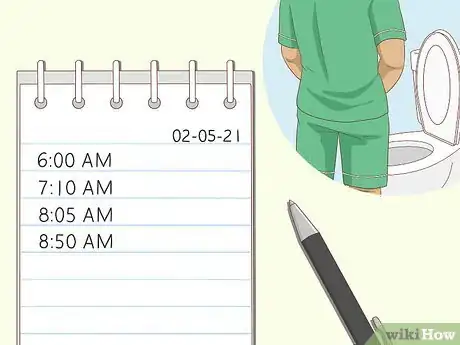
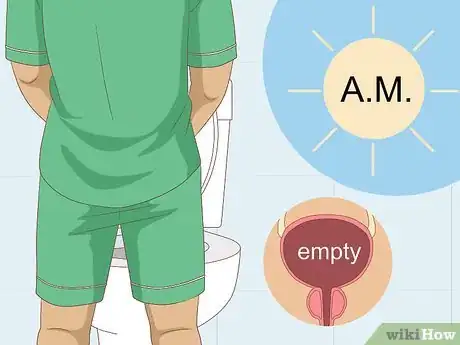
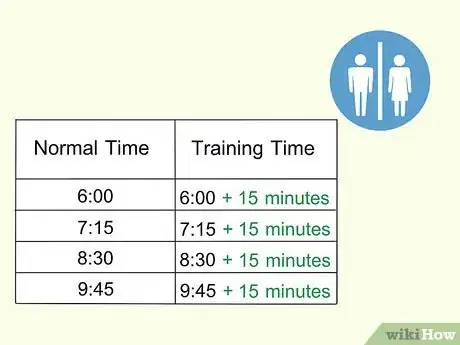
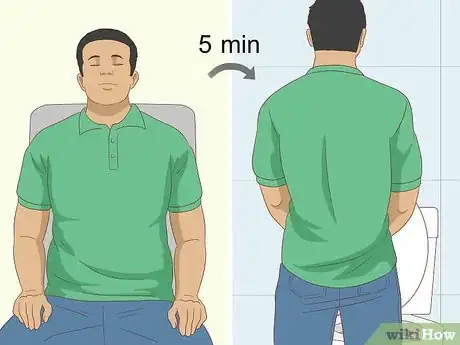
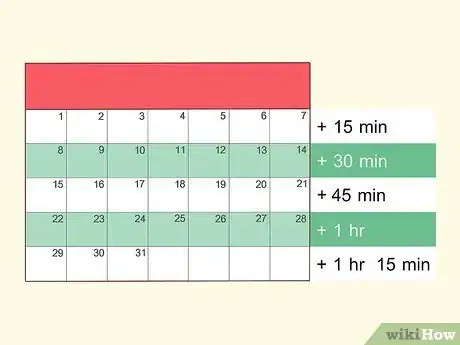
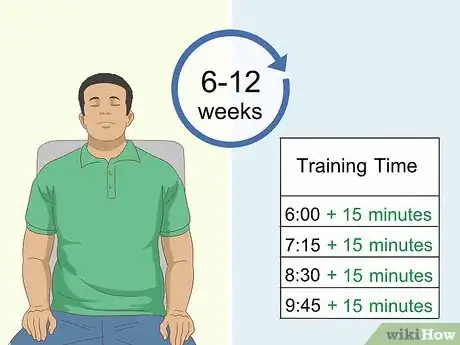
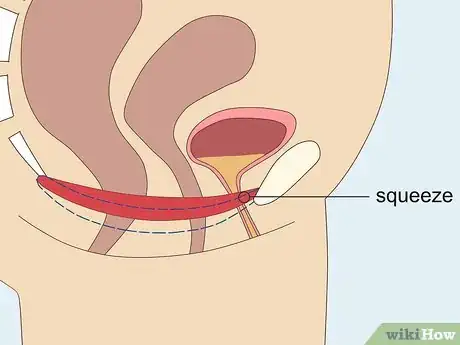

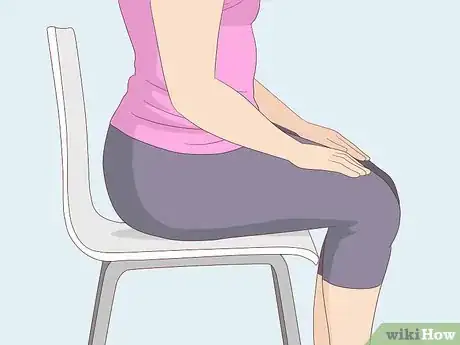
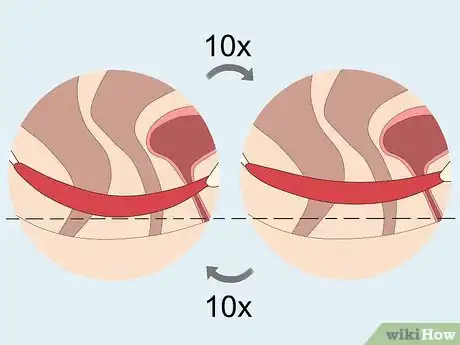
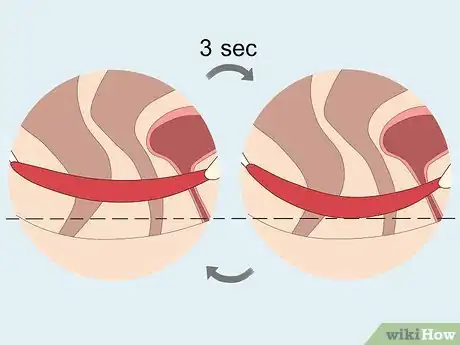
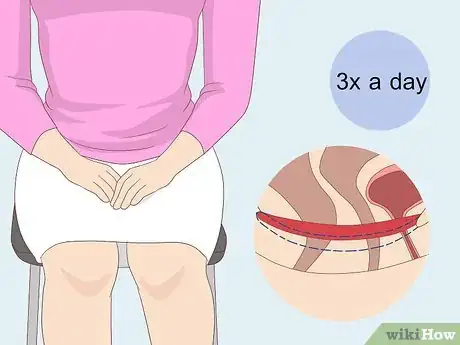
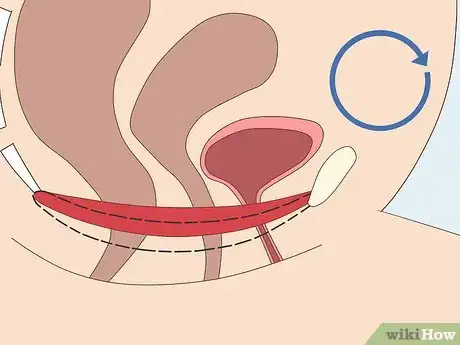
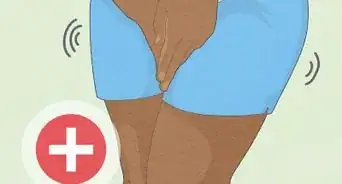




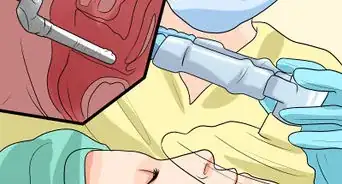




















































Medical Disclaimer
The content of this article is not intended to be a substitute for professional medical advice, examination, diagnosis, or treatment. You should always contact your doctor or other qualified healthcare professional before starting, changing, or stopping any kind of health treatment.
Read More...